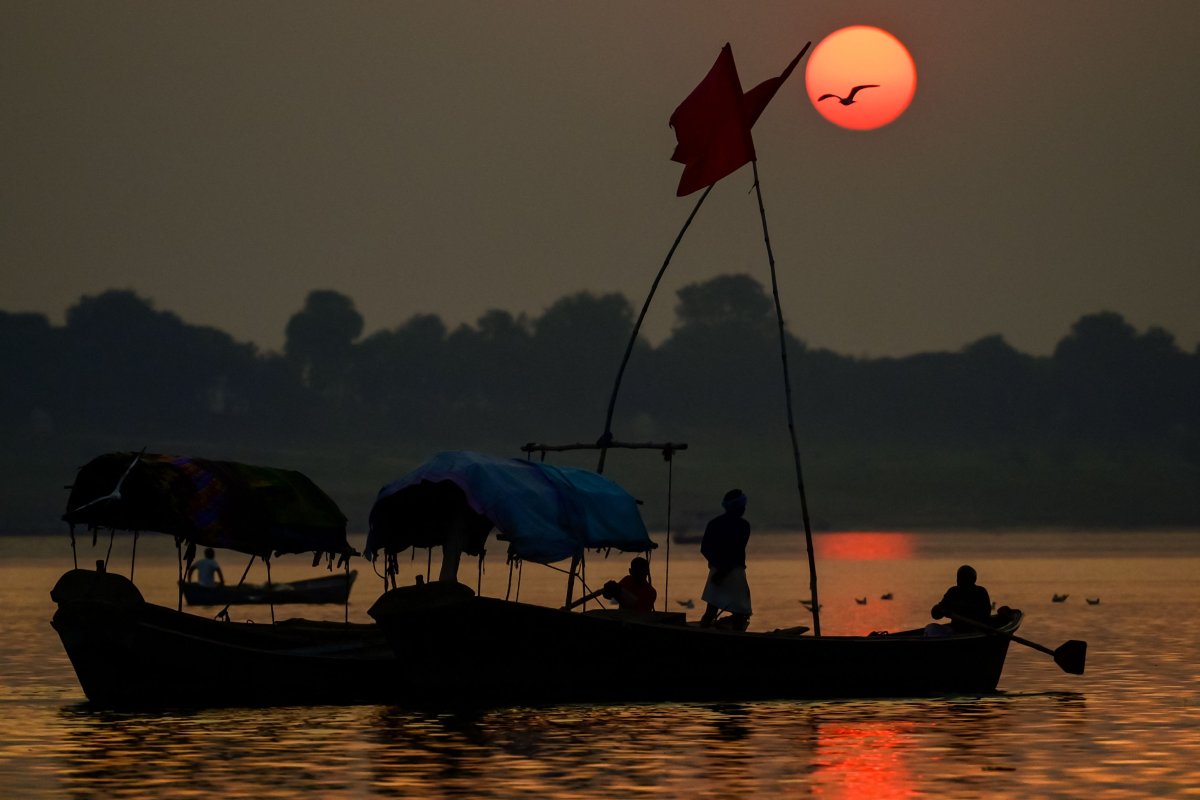While the discourse on gender and climate change has dominated the international affairs sector especially in the last couple of years, the connections made between gender, environment and climate change are not new. The various strands of ecofeminism made these connections from the 1970s, and scholars in the humanities have vociferously written and spoken about it since.
The connections between gender, the environment and climate change operate on several levels. At the linguistic level, ecofeminists have long drawn parallels between the patriarchal and exploitative language used in militaristic "conquering" of the land, "plundering" the earth, and the conquering and plundering of women's bodies during gender-based violence against women, sexual assault and rape.
The connections are also seen on another level through ripple effects of climate disasters such as droughts and/or lack of access to clean drinking water, exemplified by the phenomenon of water wives in Maharashtra, India. This is a practice of polygamy where a man marries multiple women due to the access to clean water that they bring along with them when they get married, and is still happening today. This further exacerbates issues of child marriage and dowry, where a girl-child might be forced into marriage so the family of the girl gets the dowry money, and the man marrying the girl will get access to water if the girl's family has access to a clean drinking water source.
Women and girls, particularly from the Global South, are the first to be disproportionately impacted by a natural disaster, such as when a devastating earthquake hits a community. When aid is distributed during disaster relief initiatives by the international community, items of necessity such as sanitary pads for menstrual hygiene are often overlooked. This was seen during the Nepal earthquake in 2015. Girls and single women were the most affected in this natural and humanitarian disaster, and they were also the victims of human trafficking to work in brothels in South Asia. The floods in Pakistan now pose the same dangers for girls and women affected and displaced by them.
The Third-World woman, however, occupies a complex position in these gender-environment-climate change connections. While being a figure that is most disproportionately affected during climate-induced crises and natural disasters, Third-World women are also constantly romanticized in their connections to nature and climate change, thus reinforcing the harmful stereotype of being repositories of care regarding the environment.
Postcards often show rural women from the Global South carrying earthen pots of water on their heads, their posture and walk posited as one of grace and thus worthy of emulation. Such romanticized depictions often gloss over the drudgery of the fact that these women have to walk for miles through forests and other treacherous terrain just to fetch clean drinking water for their families. Women have been commonly defined as essential providers and users of water, a role assigned to them because they have often been regarded as the sole "natural" guardians who care for the environment. Once again, harmful gender stereotypes are propagated and the burden of care work falls back on women. Such stereotypes and romanticization also overlook the bodily risks undertaken when fetching water from long distances. The weight of carrying earthen pots of water on their heads often leads to spinal deformities and pregnant women face additional risks.
In the gender-environment-climate change equation then, the Third World woman is both someone who is disproportionately affected by climate change and climate-induced disasters, while at the same time being posited as a guardian and sole caretaker of the environment, roles that have been romanticized particularly as water-bearers. This is exactly the image that comes to mind with Coca-Cola as sponsors of COP27.

While not only being tone-deaf, the Coca-Cola controversy in Plachimada and the effects on rural women in the region reverberate till today. In the early 2000s, Coca-Cola's manufacturing plant in Plachimada, in the Palakkad district of Kerala, India, drew massive amounts of water from natural water sources in the village for production purposes. The villagers depended on these sources of water for their daily livelihood. By 2003, several women protesters had gathered to protest the depletion of their water sources. The women's immediate connection to the environment and water, however, stems from a material need to survive.
As postcolonial ecofeminists have long cautioned, the international community needs to ensure that in championing the gender and climate change connections and putting women at the forefront of this, it should not perpetuate harmful stereotypes that relegate the Third World woman as repositories of care for the environment, thus romanticizing a "natural" affinity for care work.
Dr. Gurpreet Kaur, is a Public Voices Fellow on advancing the rights of women and girls with The OpEd Project and Equality Now.
The views expressed in this article are the writer's own.
Uncommon Knowledge
Newsweek is committed to challenging conventional wisdom and finding connections in the search for common ground.
Newsweek is committed to challenging conventional wisdom and finding connections in the search for common ground.
About the writer
To read how Newsweek uses AI as a newsroom tool, Click here.






